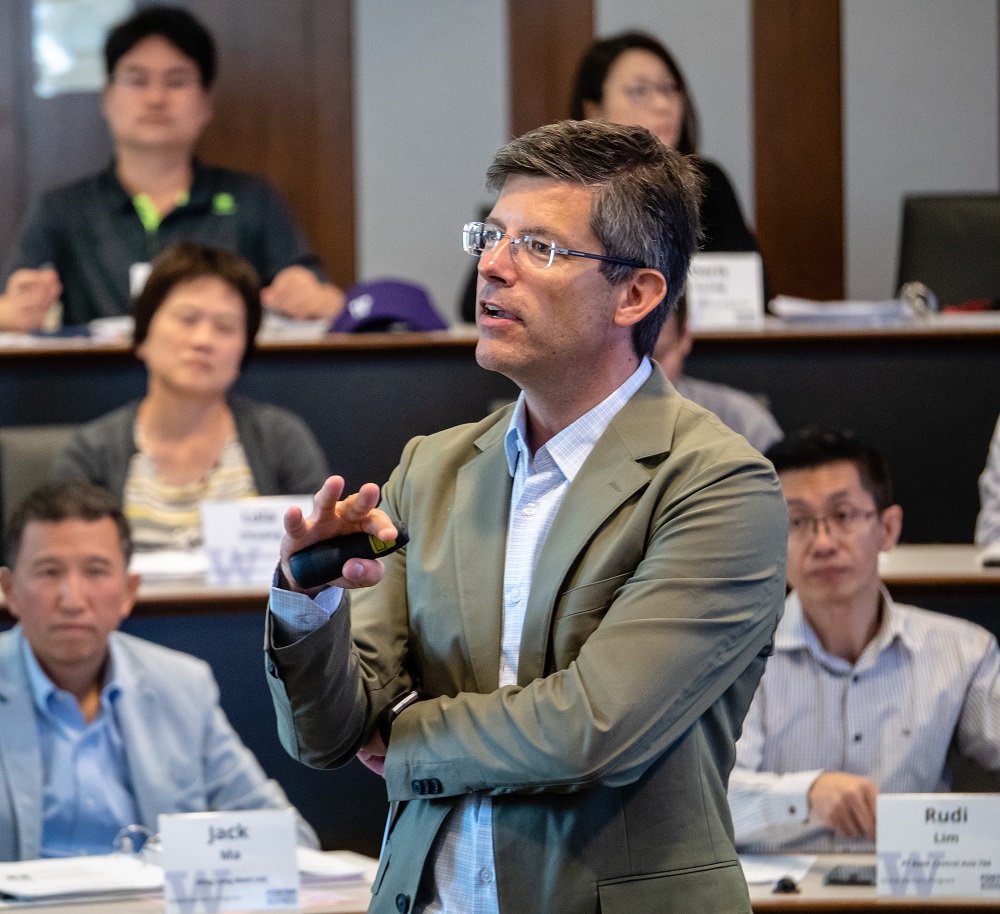Nature v. Nurture
Heredity is a major driver of irrational investing behavior
Why do we trade too much, refuse to sell at a loss, fail to diversify, bet on lottery stocks or chase past performance? It’s the genes.
Some of it, anyway. Heredity explains 26 to 45 percent of an individual’s irrational investing behaviors, according to a new study co-authored by Stephan Siegel, an assistant professor of finance at the University of Washington Foster School of Business.
The examination of Swedish twins also reveals that a significant amount of the variation in investing behavior is attributable to individual-specific experiences, though parental guidance and education do not appear to be significant moderators.
“We are, to a significant extent, born with our investment biases,” Siegel says.
Twin revelations
For the study, Siegel and Henrik Cronqvist of Claremont McKenna College analyzed the investing behavior of more than 15,000 pairs of twins logged in the Swedish Twin Registry (the world’s largest) by cross-referencing with the extensive personal financial data tracked by the Swedish tax authority.

To significant but differing degrees, the authors noted that identical twins—who share 100 percent of their DNA—were more similar in their investing behaviors than fraternal twins—who share 50 percent of their DNA, on average.
With this data, they calculated that genetic variation explains:
- 46 percent of inadequate diversification
- 26 percent of excessive trading
- 30 percent of reluctance to sell at a loss
- 31 percent of chasing past performance
- 28 percent of trading in lottery stocks
Not your destiny
Even the strongest of these genetic predispositions account for, at most, half of our investing behavior. The rest can be chalked up to the environment that is specific to each individual, “experiences that have made twins different from one another,” Siegel says.
This explains why an investor who is genetically predisposed to buy lottery stocks might overcome this tendency by drawing on his experience—of work, family, friends, colleagues, childhood, past mistakes.
“While genetic effects are important,” Siegel says, “they are not destiny.”
He adds that the study found little evidence that general education moderates genetically driven investment biases. However, experience working in a finance-related occupation does appear to moderate genetic predisposition.
A new prescription
Siegel studies and teaches finance for a living. Even with his knowledge of the consequences of poor investing decisions, he admits it is difficult to overcome his innate biases.
To address the problem at the societal level, Siegel proposes the creation of a new form of asset management contract that would afford investors protection from themselves. This default contract, certified by a trustworthy third party, would provide extensive protections to the average investor, affording him the confidence to delegate financial decisions to an experienced professional who’s bound by strict standards and incentives tied to the client’s best interests.
“Efforts to overcome a strong genetic predisposition to invest irrationally, while possible, might not be the most effective solution,” Siegel says. “Instead of trying to change my behavior, what if I could delegate some portion of my portfolio to an expert in whom I have confidence?
“Certified standards ensure that I can get a reliable product to fix my eyesight, which is largely determined genetically. There’s no reason we can’t do something similar for investing.”
“The genetics of investment biases” was published in the August 2014 Journal of Financial Economics. It was the latest in a series of studies by Siegel that also find a significant genetic component in financial risk-taking, savings behavior and real estate decisions.
